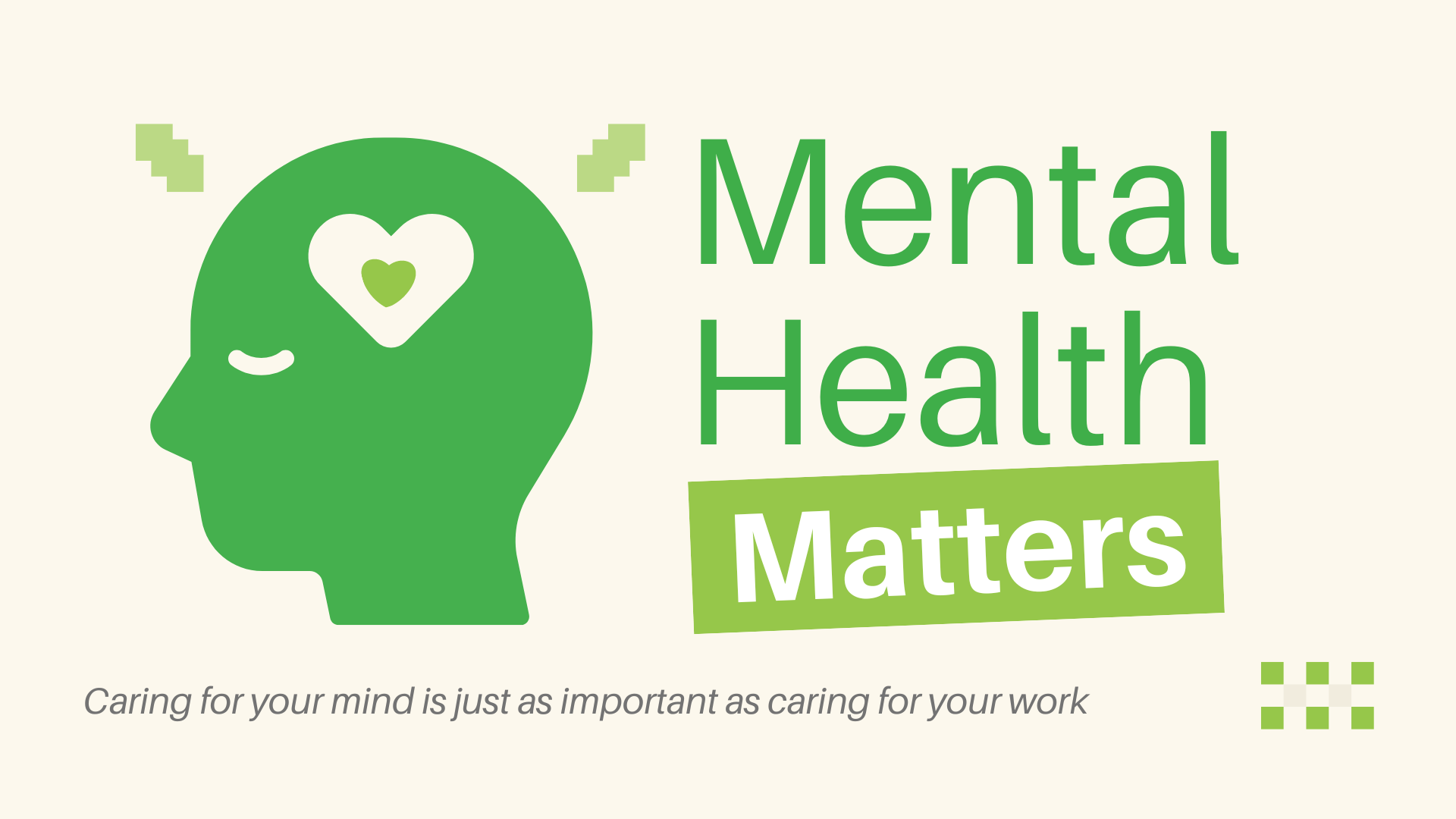Mental health isn’t just a trending topic – it’s a critical part of our well-being.
In today’s world, where the demands of work and life constantly collide, our mental well-being often takes a backseat. But it shouldn’t. Mental health is the foundation that supports everything else, from productivity to creativity, and yet, we don’t talk about it nearly enough.
This Mental Health Awareness Week is the perfect opportunity to start making mental health a top priority—not just for one week, but every day.
Why Mental Health Matters at Work
A healthy mind is essential for a healthy workplace. When employees feel mentally well, they are more engaged, productive, and motivated. In contrast, when mental health is neglected, it can lead to stress, burnout, and disengagement. The reality is, poor mental health doesn’t just affect individuals—it affects entire teams, departments, and businesses.
In fact, the World Health Organization estimates that depression and anxiety cost the global economy $1 trillion annually in lost productivity. That’s a staggering figure. But what’s more staggering is how much of this can be prevented by taking mental health seriously in the workplace.
Breaking the Silence
Despite the progress we’ve made, the stigma around mental health remains a significant barrier. Too often, employees fear being judged, misunderstood, or seen as “weak” if they speak up about their struggles. This silence can be damaging not only to individuals but to the organisation as a whole.
The good news? We can break this silence by fostering a supportive environment where talking about mental health is not only accepted but encouraged. Whether you’re an employee or a leader, the more open we are about mental health, the easier it becomes for everyone to thrive.
It’s okay to not be okay. And it’s okay to ask for help.
What Can Employers Do?
Creating a mentally healthy workplace doesn’t have to be complicated. Simple, meaningful changes can make all the difference.
- Promote Work-Life Balance: Encourage employees to take time off, unplug after work hours, and avoid overworking. Healthy boundaries lead to happier, more productive employees.
- Provide Mental Health Resources: Offer access to Employee Assistance Programs (EAPs), mental health counselling, or workshops that promote well-being. Make these resources easily accessible and known to everyone.
- Foster Open Communication: Create safe spaces for employees to discuss mental health without fear of judgment. Whether through regular check-ins, team meetings, or anonymous surveys, make sure your employees know they can speak up.
- Train Leaders in Mental Health Awareness: Managers and team leaders should be equipped to recognise the signs of mental distress and know how to provide the necessary support. This can be as simple as offering a listening ear or connecting employees to the right resources.
- Offer Flexible Work Options: Give employees the flexibility to manage their schedules in ways that suit their mental well-being. This can mean offering remote work, flexible hours, or reduced workloads during high-stress periods.
Self-Care is Key
It’s not just about what employers can do—employees need to take charge of their mental health, too. Self-care is essential to maintaining mental well-being. Whether it’s taking a break, getting some fresh air, practicing mindfulness, or talking to a professional, self-care is a must.
It’s easy to forget that we can’t pour from an empty cup. Prioritising mental health is not selfish—it’s necessary for success, both in and out of work.
How is your workplace supporting mental health? Share your thoughts, tips, and experiences in the comments below. Together, we can create workplaces where everyone feels safe, supported, and valued.

